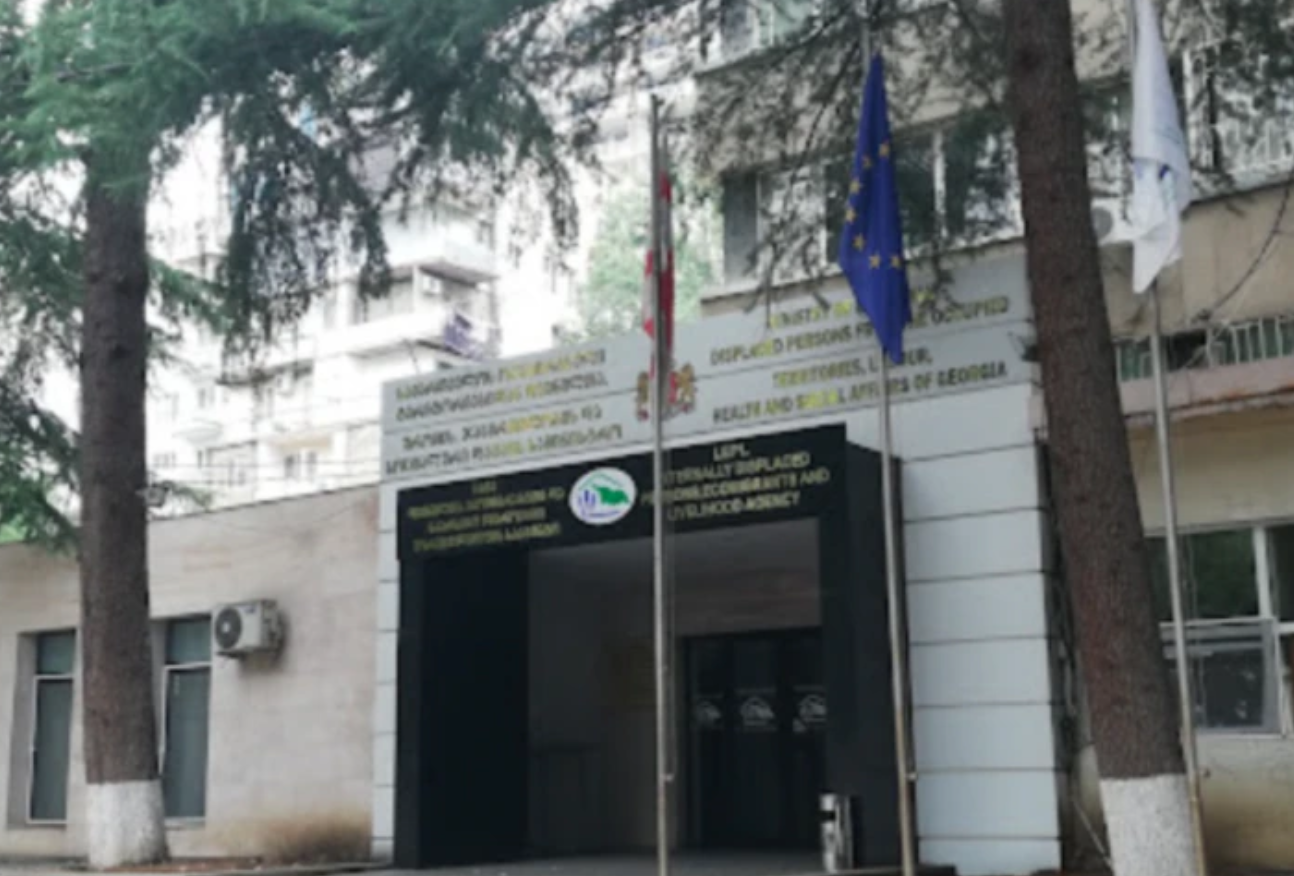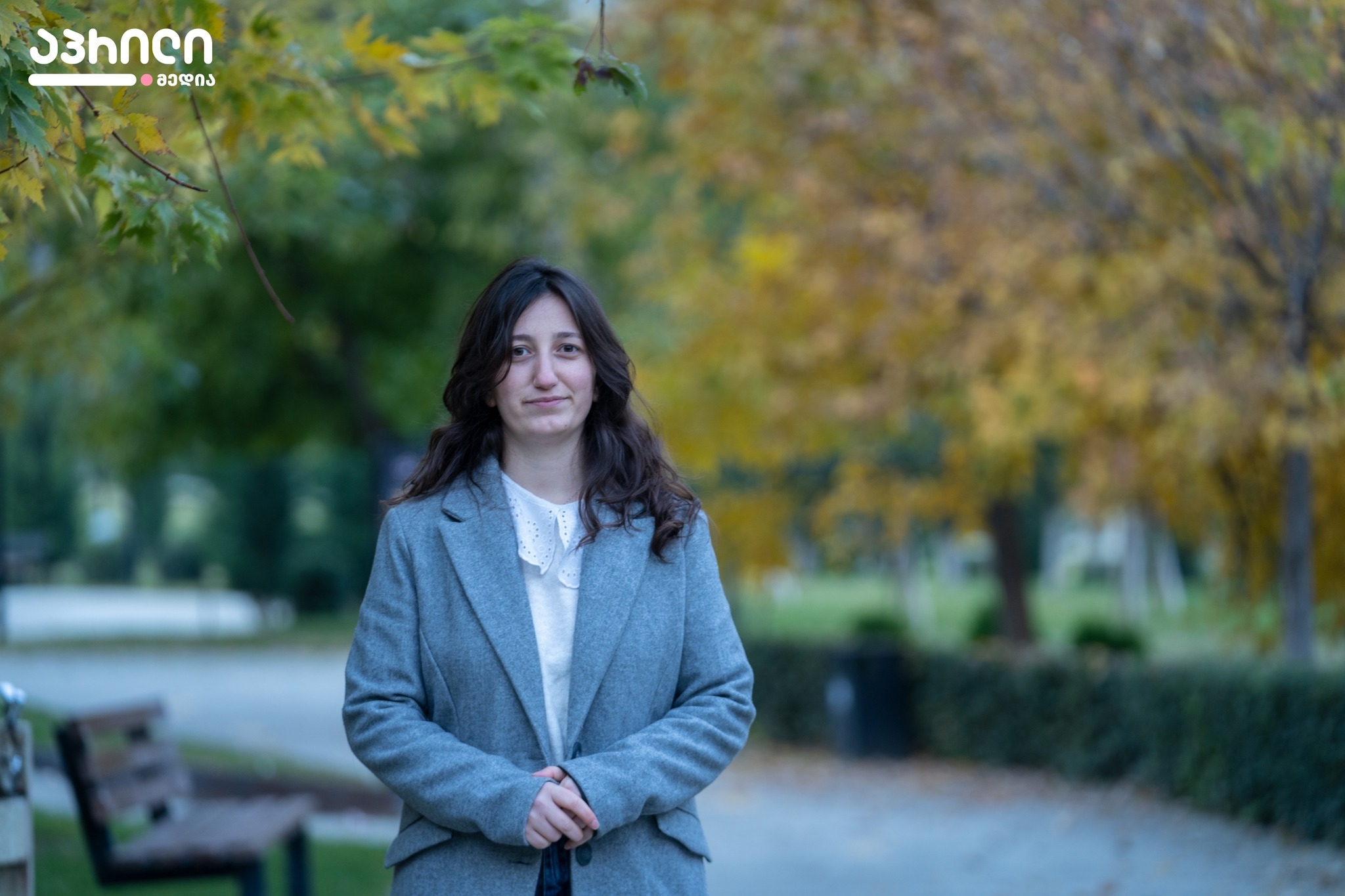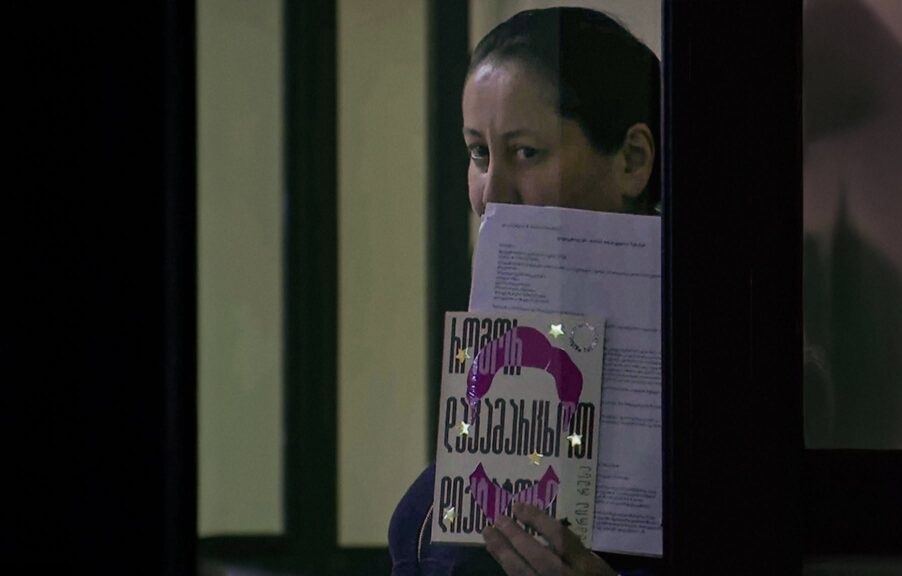Shukruti resident Dali Kupatadze took the extreme measure of protest and joined the men who have been on hunger strike since September 14, along with other women. With this step, 62-year-old Dali showed solidarity with her fellow villagers protesting in front of the Parliament. Every day spent on the Parliament steps is difficult, especially at night, in the cold and rain. The police do not allow them to pitch a tent. However, the Shukruti residents do not intend to give up.
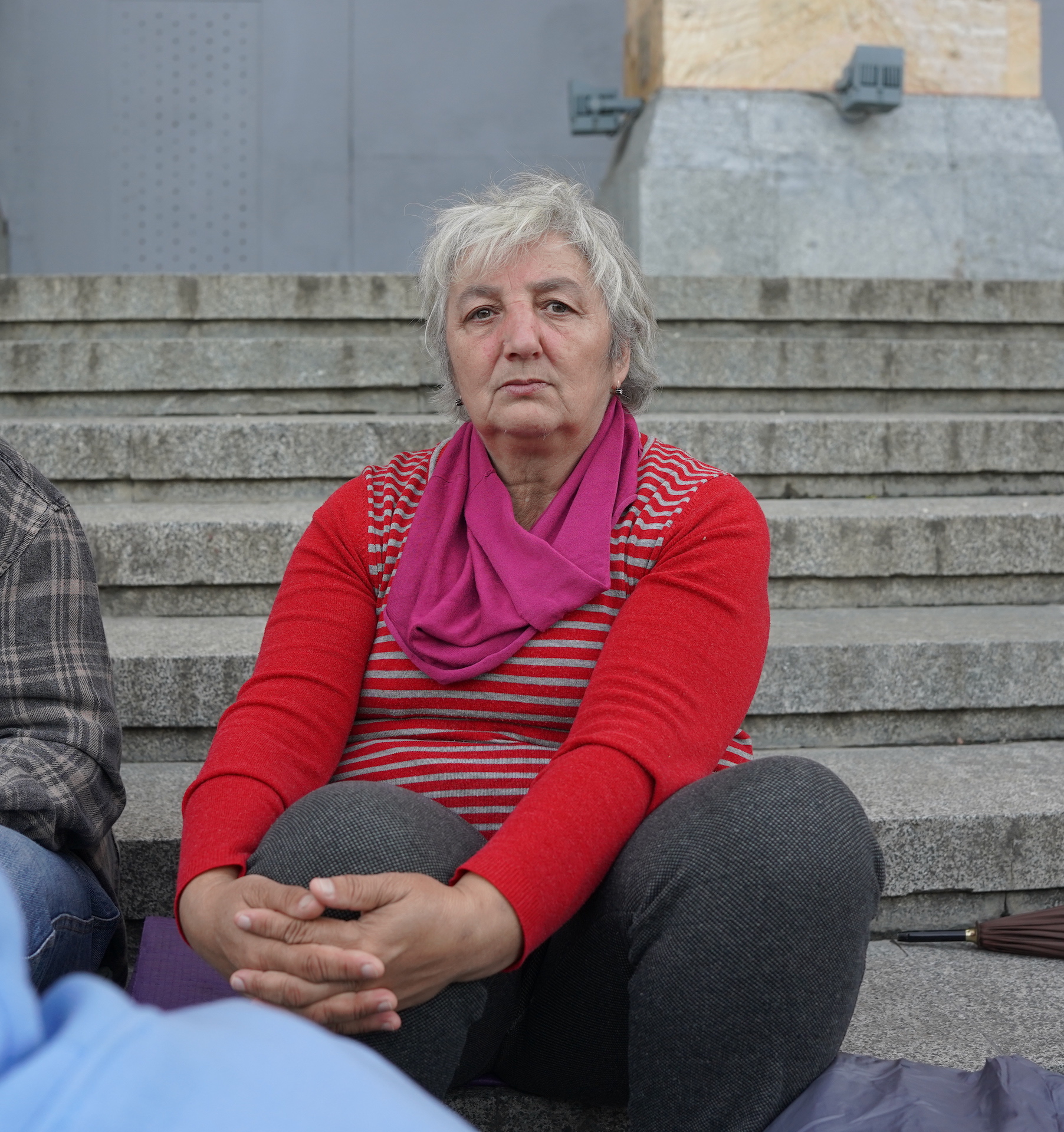
Protester – Dali Kupatadze, photo by Omar Tsotsoria, Maisi.News, 2024.
“I don’t know how long these boys will last. We all stand by each other. I left my home, my family, and came out to the street. I’ve been fighting for my home since 2017. A few years ago, my boy ended up in an accident, we needed funds. I thought, I’ll even sell the house, anything, for my child to live – but we couldn’t manage. We love this place very much, we grew up here, we grew old here. We created everything with our own hands. But what’s the use? The house is damaged, hazardous, the walls are cracked, crevices have appeared in the yard and adjacent plots. An expert assessment was conducted, but I wasn’t even given the report – what compensation are we talking about?” Dali tells us.
The protesters under the open sky only have inflatable pillows and blankets, which the police search several times a day, motivating it with the risk they may be keeping illegal items. However, they have not found anything so far – “nor will they find anything illegal,” Dali shares.
Along with Dali, her fellow village women are also spending the night in front of the Parliament. They tell me that the company “Georgian Manganese” is illegally mining ore under their residential houses and yards, resulting in irreparable damage to the environment and their property: “Shukruti is doomed for destruction. The process is irreversible,” they say.
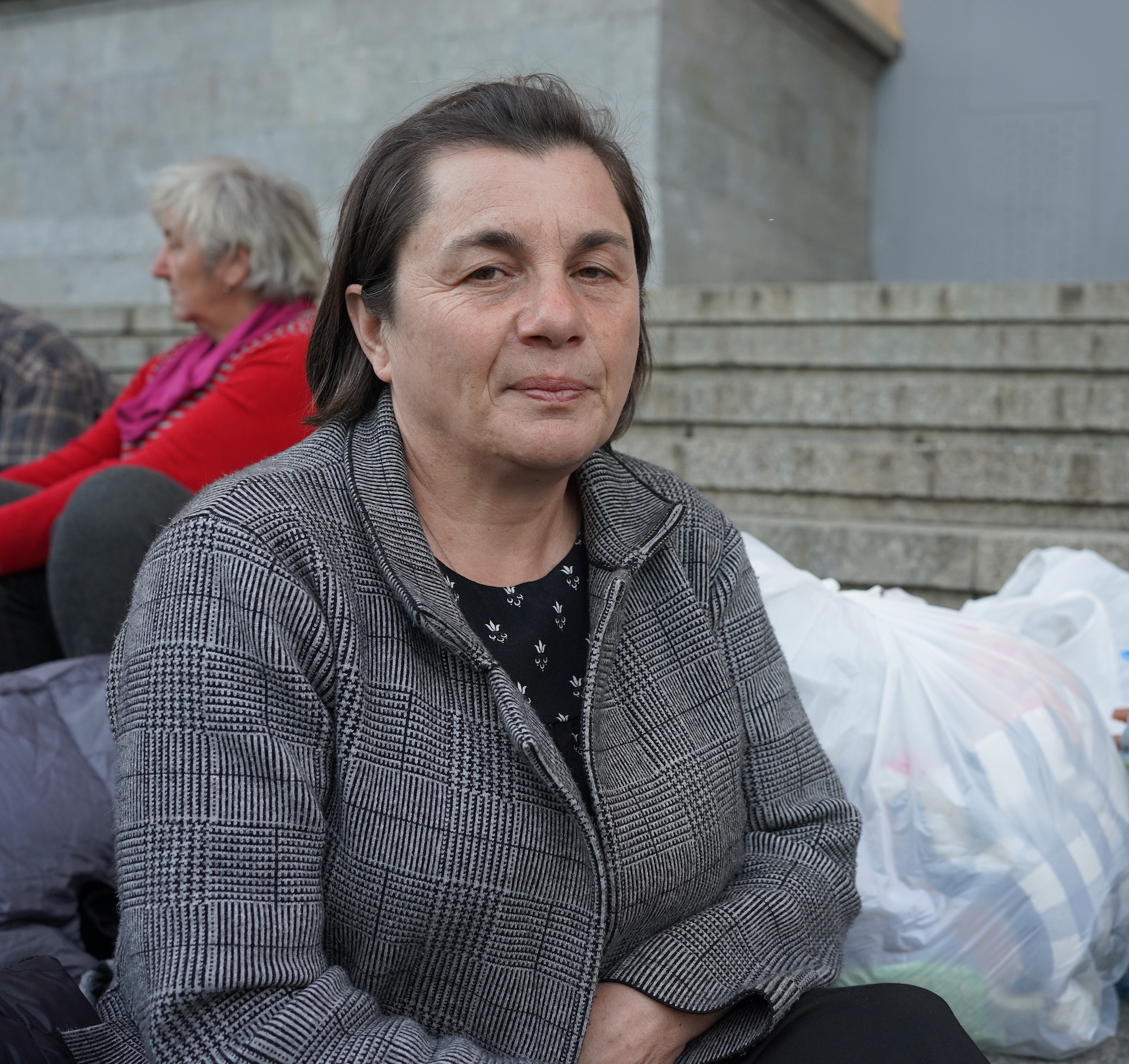
Protester – Nana Tsertsvadze, photo by Omar Tsotsoria, Maisi.News, 2024.
“Our village stands on emptiness. Imagine, under the ground we walk on, there’s a void – at a height of 160 meters. At any time, the ground can collapse and take us down with it. In Shukruti, ore mining began during the Soviet Union. There was one mine in the village, which they closed and left a support for the village so that it would not collapse. But they (“Georgian Manganese”) reopened the closed quarry and started mining manganese in violation of the rules. Soon they opened two open pits as well, they got a taste for it. Their appetite grew. The destruction of our houses and plots began. If I don’t have a house and a yard, isn’t it better if I die? We have risked our lives,” 54-year-old Nana Tsertsvadze, whose new address for the last 24 days has been the steps of the Georgian Parliament, joins the conversation.
Along with the women, the health condition of the six men on hunger strike is grave. “I lost consciousness. When I came to my senses, I was in the hospital, they were giving me transfusions, I immediately took it off and came back. I’m ready to sacrifice my life for the truth. Everyone knows well what’s happening here, the whole country is watching us, but the government is not paying attention to us. Our resources are running out. We are going towards death,” says 33-year-old Giorgi Bitsadze, who had sewn his mouth shut as a sign of protest while still in Shukruti.
The Shukruti residents do not intend to stop the protest until their demands are met. They have two demands – to stop ore mining in the vicinity of the church and cemetery, and to objectively assess their residential houses so that they can afford another place to live with the compensation received.
“The company brought in a private auditor who laughably valued my house at 89,000 GEL. At this price, I can’t even build one floor, let alone buy a house. The material alone is not enough, I have to pay the workers, right? I have to fix up the house. All costs must be calculated in advance,” says Nana Tsertsvadze.
The private auditor hired by “Georgian Manganese” is Levan Ebanoidze. In a conversation with us, he explained that he assessed the property of the population in 2020-21 and prepared the report according to the market prices existing at that time: “I don’t remember exactly how many families’ houses I assessed, but I went to each one individually and studied, evaluated in detail,” Ebanoidze told us.
We asked the JSC “Georgian Manganese” whether the company intends to start negotiations with employees and meet the demands of the protesters, whether it has paid full compensation, and why it hired a private auditor to assess the property of the population. However, the head of the company who will answer our questions is not in the country.
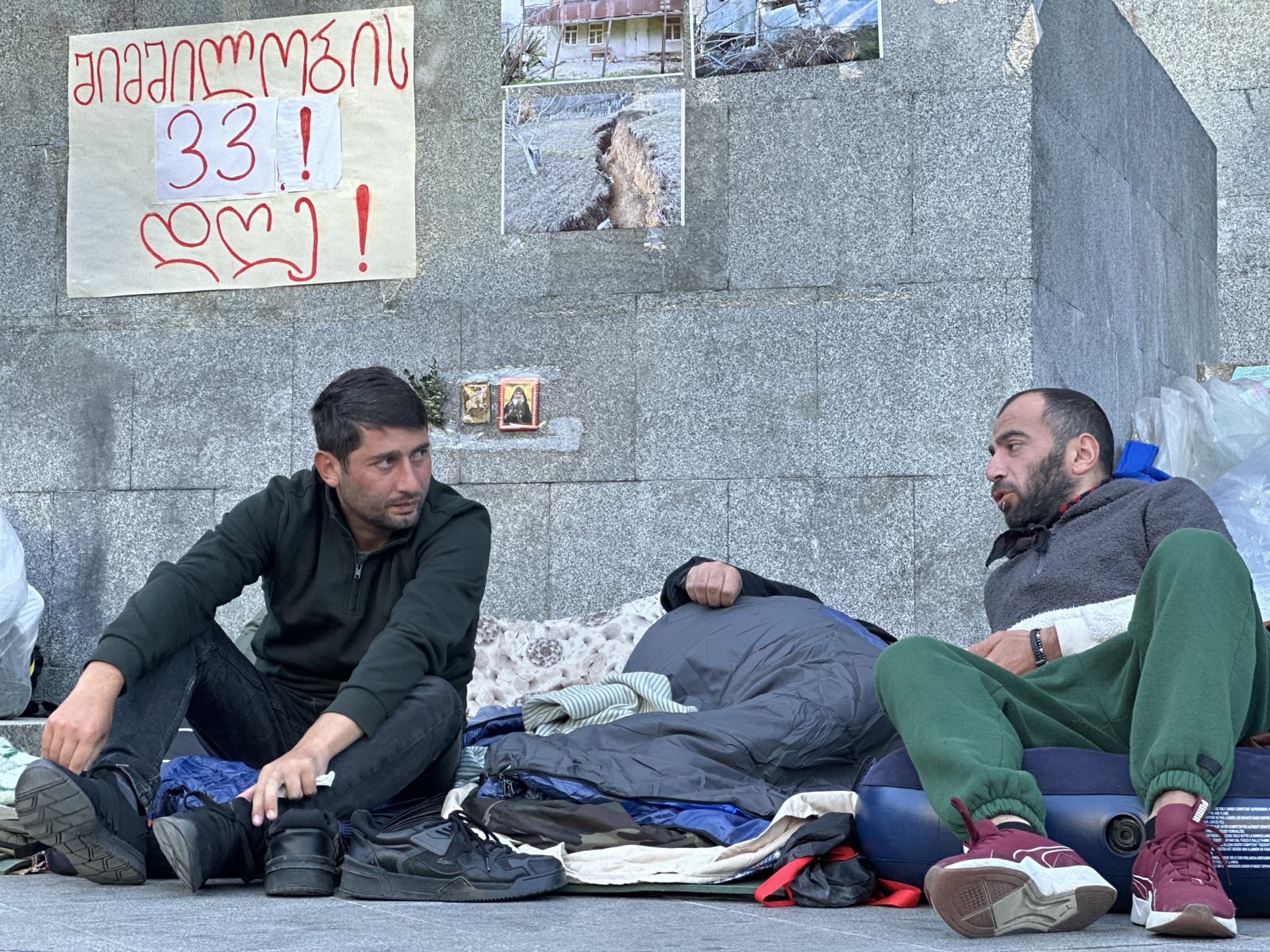
Protesters – photo by Salome Gogokhia, Maisi.News, 2024.
In a video released yesterday, Zurab Badzgaradze, the director of JSC “Magharoeli”, a subsidiary of “Georgian Manganese”, explained that the organizers of the protest were paid 150,000 GEL as compensation – “The company is counting millions in losses every month and against this background we are still paying salaries. 7 out of 12 mines are suspended. In the near future, it will become clear whether the paralyzed mines will be subject to conservation or liquidation,” says Badzgaradze.
However, 280 households live in the village, and the JSC head does not say anything about whether the rest received compensation. The company filed a lawsuit against the striking mine employees for the damage caused. The court ordered the employees to pay 5.5 million GEL in favor of “Georgian Manganese”. The case is in the Court of Appeals.
Meanwhile, as the population of Shukruti continues their hunger strike in front of the Parliament, exactly five hundred meters away from them, the “Georgian Dream” party opened a supporters’ club yesterday, with party leaders and various celebrities gathering at the event. On October 2, the Prime Minister of Georgia responded to Publika’s question about the Shukruti residents’ protest: “Such protests often coincide with the pre-election period, which is an unfortunate event,” and noted that he would gather “more detailed” information for the next briefing.
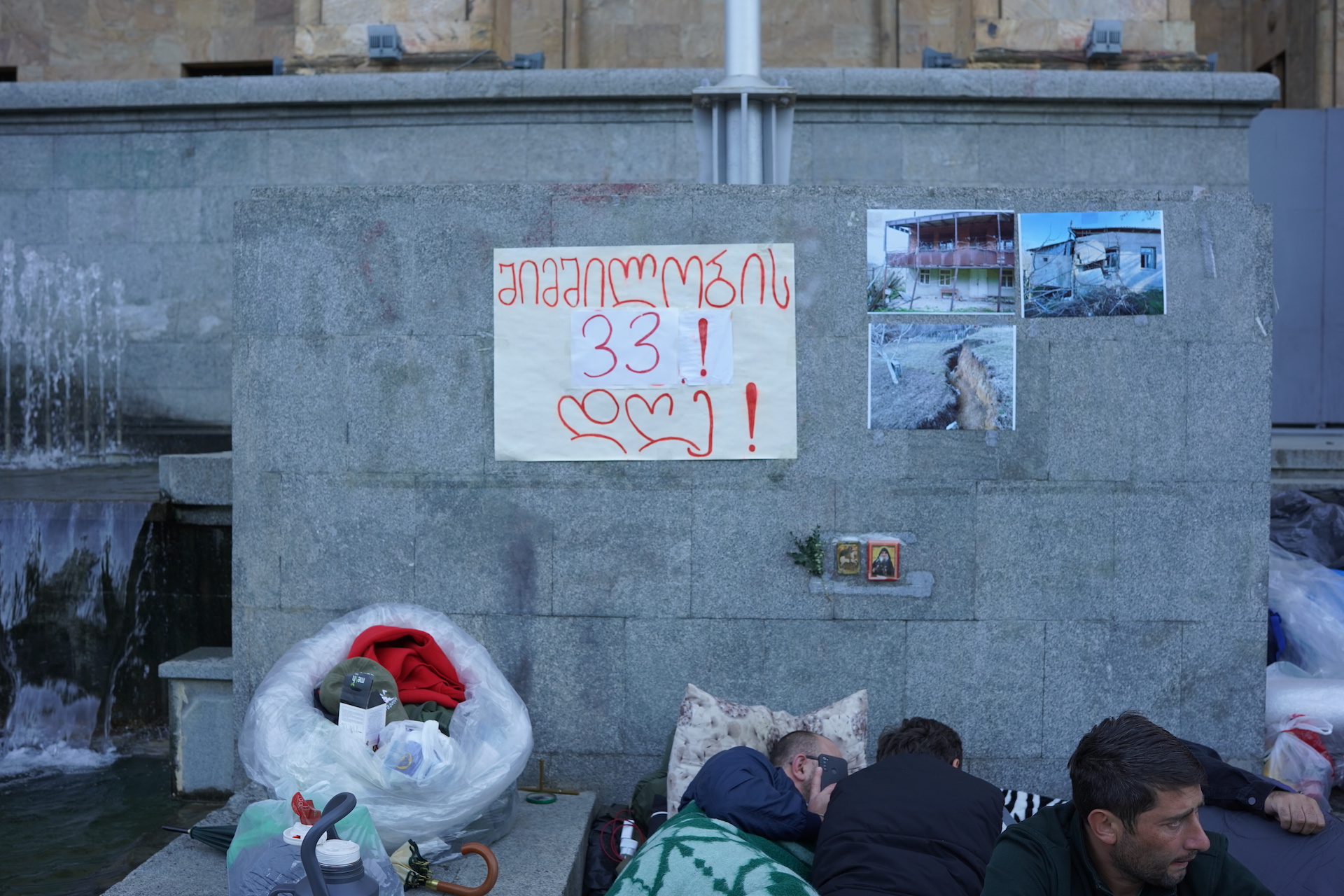
Protest in front of the parliament – photo by Omar Tsotsoria, Maisi.News, 2024.
The Shukruti residents have been pointing out for years the damage caused to their houses as a result of the work carried out by the company – in 2019, the Shukruti residents blocked the road and stopped the mining of manganese, in the winter of 2021, a participant in the protest sewed his mouth shut as a sign of protest, and the recent protest moved to the front of the Parliament from September 11. Some of the participants of the recent protest began a hunger strike over a month ago.
Author: Salome Gogokhia, Maisi.News

